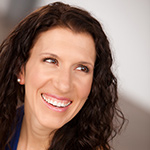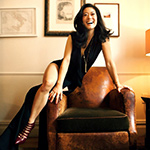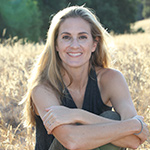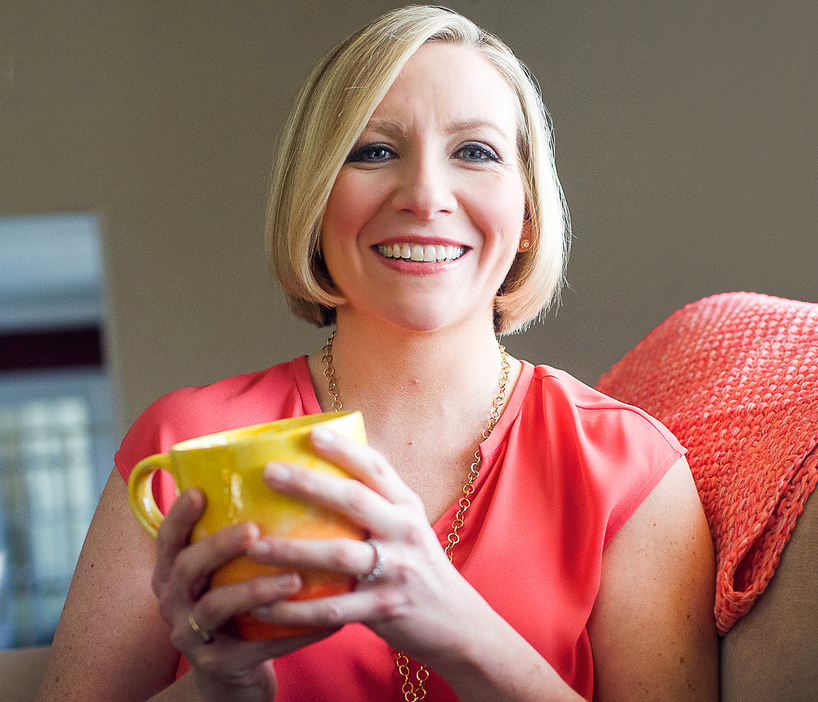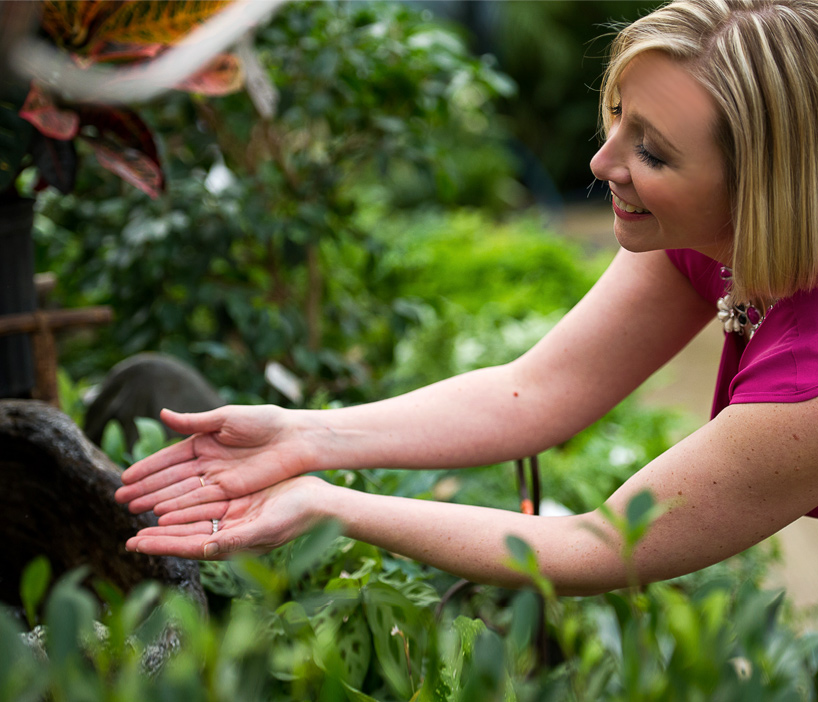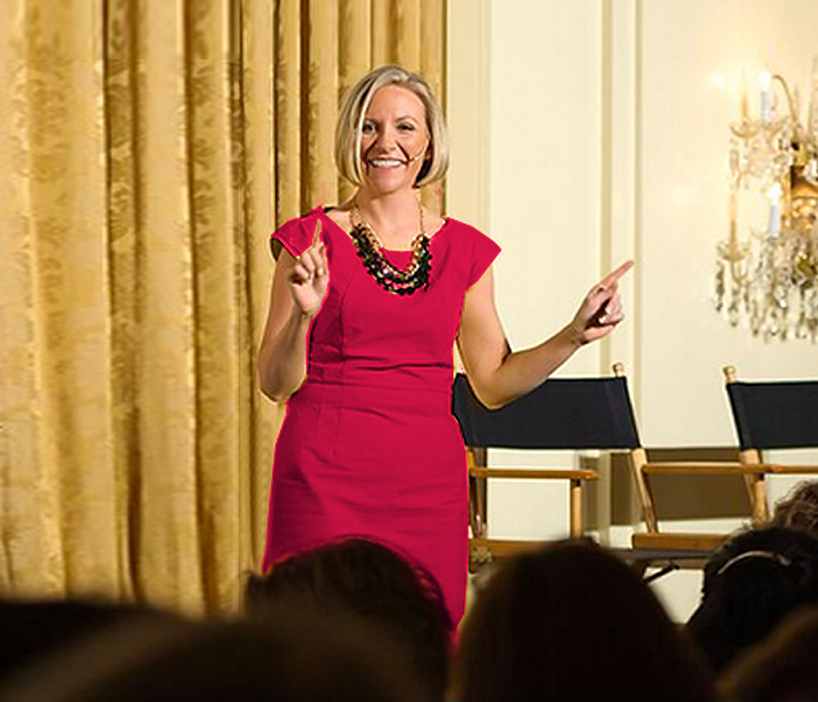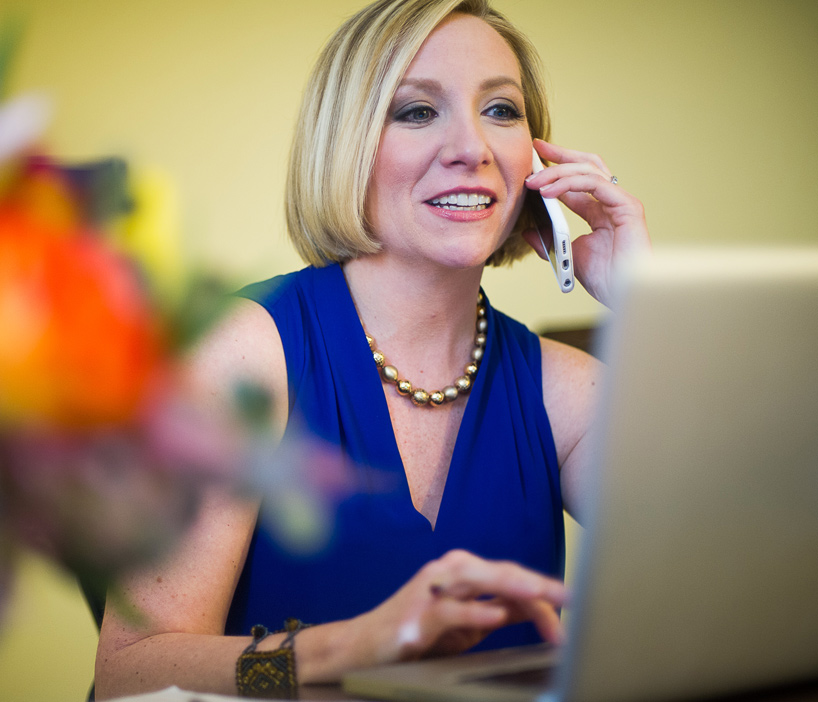Today Patty is talking with Gahrey Ovalle author, activist, and serial entrepreneur. After listening to his interview on her publisher’s podcast, Patty knew she had to talk to him. There is a lot to encourage all of us to see where and how we can create change.
He encourages people to say less and do more. Gahrey realized that he was repeating the same actions, which meant the same problems continued to show up. That’s when he figured out that he had to make changes if he wanted his life to be different.
Gahrey and Patty talk about leadership and how people come to step into positions of leadership. You don’t have to be the biggest voice in the room to impact change. Gahrey believes that all of us can be a leader. He shares how his mom showed him it was possible by stepping up as a leader when he was growing up.
Self-reflection is key to making changes in our lives. We have to be willing to face the things that aren’t easy. That’s how we can address what’s hurting us and design better outcomes.
What does it mean to grow forward and give back?
Patty and Gahrey talk about how to help their children address their limiting beliefs. As parents, there’s a great opportunity to help them make good choices. It’s a way to help them move past generational patterns.
Don’t miss the part of the conversation where they discuss race. Gahrey reminds us that we have the choice to grow together, or we will continue to grow apart. Conversations about race, bias, and inequality impacts all of us, no matter our ethnicity.
Gahrey also explains how to begin having these conversations with our children. He encourages everyone to extend grace to yourself. You don’t have to be perfect or have all the answers.
What does it mean to be an advocate? This is something all of us, can join with others who are looking to make changes in our communities.
More About Gahrey:
Gahrey Ovalle is an author, activist, and serial entrepreneur who has spent more than 20 years building successful six-and-seven-figure companies for himself and others. He now teaches people the art of living remarkable, purposeful, happy lives while erring on the side of personal well-being, financial security, and growth. Gahrey is passionate about leveraging personal transformation and development to create generational and professional wealth.
Through his activism and entrepreneurship, he has strived to heal and strengthen Black and Brown communities for almost 25 years. With his book Unjustified, he provides insights so that others are able to find their own success for themselves, their families, and their communities. He encourages people to “say less and do more” because conversation is good, but action is gold!
Links Referenced:
Here is a link to Gahrey’s podcast interview with Azul:
https://authorswholead.com/2021/02/25/episode142/
Book: https://www.amazon.com/Unjustified-Where-Have-Black-Leaders/dp/1736142003/
Social Handles (IG, Twitter, FB) @gahreyovalle
Website www.gahreyovalle.com
SUBSCRIBE TO THE SPACE FOR MAGIC PODCAST ON YOUR FAVORITE PODCAST PLATFORM
Apple | Spotify | Stitcher | iHeart | Amazon
TRANSCRIPT
0:00:04.3 S1: Welcome to the space for magic podcast, where people who are led by their hearts come to learn the secrets to receiving all the gifts the Universe has for us. I’m your host, Patty Lennon. I’m an ex-type A corporate banker turned intuitive coach. Using a blend of common sense, brain science, and just a dash of magic, I’m here to help you create abundance in every area of your life and business. Welcome. Hey everyone, welcome to this episode of the space for magic podcast. I have a special guest for you today, this is a man I met through my publisher, we have our publisher in common, but how I found him was actually because I was listening to my publisher Azul’s podcast, I came across Gahrey Ovalle’s interview and I was so impressed with what he was doing in this time, in this space and time that I wanted to have him on the podcast… Now, I’m gonna give you a little bit of background about who Gahrey is. He’s a successful entrepreneur, social activist, and dedicated to family, Gahrey has strived to heal and strengthen Black and Brown communities for almost 25 years, his new book unjustified is out where he provides insights so that many more able to find their own success for themselves, their families and their communities, he encourages people to say less and do more, because conversation is good, but action is gold.
0:01:36.6 S1: Gahrey, welcome.
0:01:38.6 S2: Thank you so much, Patty, such a pleasure to be here.
0:01:41.8 S1: Yeah, so I don’t know if you said this specifically on the interview, the way I’m about to phrase it, but this was that… This was the note I took while I’m walking on in the morning, I’m listening to you, and I wrote this in my little note app on my phone, you don’t change just by doing stuff, you have to have internal reflection, so I might be quoting you in properly but that was the essence of what you had to say…
0:02:09.6 S2: No, for sure. And that’s so true. I… Change doesn’t happen by happenstance, it doesn’t happen because we wish and hope it happens because we are willing to intentionally work on things that we know need working on, and that only really happens when we’re willing to go internal to create the change within that we need. So this is what we can start to see the external results in the world we live in, the internal change, that’s probably the most difficult portion that all of us face, that’s the one mirror that nobody wants to look at, nobody wants to look at themselves. Nobody wants to call themselves out for what they’re doing, right, wrong and indifferent, and the reality is, we create everything in our life, all things good, all things bad, all things different, we call it, and we have the ability to shape it and shift it affect it. And when we go internal to think about these things, that’s when we get to those points in our life where we can start to make the greatest change for yourself.
0:03:05.8 S1: Now, where did you learn that? Where did you decide that on your personal development path… ’cause you’ve been doing this for so many years. It’s.
0:03:17.2 S2: So true. I think most people, I learned it the hard way. We go through life and we do what we’re told, and we live our life with all of these limiting beliefs, and we keep running into struggle, and somewhere in my… I kind of started early. My wife and I, we met in college, we decided to get married early, we decided to have our children early, so all of these things happened early on to me, so I’m in my 20s, probably middle 20s or something like it, and I’m starting to realize these things because I’m running face first and to a lot, it’s difficult, it’s like, why am I having so much trouble here, why do I keep running into the same problem? And I realized it’s because I was creating that unintentionally, but I was still creating, and I had to step into that space and I had to recognize as a young person, Hey, I need to do something different here, I’m gonna keep repeating the same problem and I’m gonna keep coming back to the same point. To learn the same lesson at some point, I’m gonna have to learn it, so might as well be now.
0:04:18.8 S1: So I know you’re a big proponent of people stepping forward into their leadership, not just for themselves, but so that this younger generation has someone to look to, that shows them what’s possible for them. And as you were in your 20s, was there a person or people that helped you get there? I was much older than you were by the time I figured some of this stuff out, and it required me like hitting my head against the wall a lot, and then finding a few authors that kinda opened my eyes to what was possible outside the way things the way I was doing things.
0:05:02.0 S2: Yeah, I completely understand that. ’cause like I said earlier, the limiting beliefs, the things that were brought up with, we tend to hold on to like it’s ours and then we hold on to it, like it’s our problem, and it’s not until we really start to reflect on it that we realize we’re holding someone else’s bag. For most of us, I think that’s our experience, fortunately for me, like I said in my 20s, is when I really started to turn it up and move myself and optimize my life in as many ways as I possibly could, but for me, that level of leadership that idea of giving back to your community, of doing for others, that was something that was instilled in me as a child, so I was very fortunate to watch someone who loved their family and community enough to effect change in them. And that was my mother. My mother was a community activist, and this little tiny lady had the ability to transform and create change for everyone in the community, and she started to get recognized and she started to create the change that we needed and to make our lives better.
0:06:06.1 S2: Not just here, not just for her family and her children, but for everyone, and it was in that moment that I realized each one of us is capable of doing that, and two, you don’t have to be the biggest person or the biggest voice in the room, you can create change that will be dynamic and will help others, and it’s in that space as a child that I saw these things and I just continued to implement them as I got through high school, I kept doing it a lot of success through college, once I got married and into my early entrepreneurship, I just kept doing that, and those things just… It absolutely changed my world, which had the ability to change so many others as well. Now, I’m curious, do you think the fact that it was your mother versus your father that you saw as this mentor in social activism that that made a difference to you? Absolutely, the short answer is absolutely being able to see a woman step up into that space and be successful and command respect and kind of run the show, to see that as a young person, I was just one amazed, like, Wow, mom’s amazing.
0:07:19.0 S2: And that’s amazing. And then as I got older, I started to recognize the world that I was entering, and I recognize exactly how sexist and racist and biased, and how much bigotry existed and how unfairly women were treated in our society, and I realized in that moment, not only do I have to step up and be a leader, but I have to do better. When I get to positions where I have the ability to create change for others in that regard, I wanna make sure that I am stepping up into the space and providing safe spaces for women and children, and in seeing that, I really started to recognize… One, exactly how important and powerful women can be and to exactly how unfair the world is to them, and for me, I took it on as a personal responsibility, and I saw that I have the ability to step in the space to speak in this regard and to change that dynamic at the very least in my space with my children and anyone I come in contact with. And that’s what I’ve done up until this point. So you’re doing this work in the world, it’s not that your book unjustified was the start of you doing this work, I was just really creating a bigger platform, if I’m understanding your story properly.
0:08:35.1 S1: That’s absolutely right. So what was it that said, You know, it’s time for you to write a book. Because when I listen to you on Azul’s podcast, and for those of you listening, I’ll put a link to that interview as well, ’cause it was fabulous. And remember you talking about the book was inside of you, but it just never was something that felt like you had to do it right. So what changed?
0:08:57.5 S2: I really appreciate that question, Patty. Obviously, so much, we are all in a space where we are older, we are professionals, many of us have children, some of us have grandchildren, we are moving into a space where our life is always in flux and for me, I don’t know, I recognized early that these things were always important to me, but timing is really the most important, and as I was young, as much as I wanted to share this book as much as I wanted to write it, I realized I had to figure out how to navigate marriage, and I had to figure out how to navigate children and entrepreneurship, and there were already so many things on my plate that I really… That I knew in those moments, those were much more important than any book I was gonna write for sure. Building a strong marriage, raising a strong family, those things were most important to me, so I had to make sure that was under control first in my life, once I got my children to the point where they graduated high school, they were graduating college. And at this point, both of my children have now graduated college, I just started to recognize as they were entering the college space, I now have time and energy, and it’s coming back to me because I now no longer have to run around after my children it…
0:10:17.7 S2: To bring them to dates and the events and sporting programs and things of that nature. So at that point, let me sit down and take a breath and just kind of enjoy this moment in my life, and as I did so, I immediately recognized again on reflection, I had a wonderful journey, just an incredible journey. It wasn’t easy, it wasn’t simple, but it was wonderful and beautiful, and I had a lot of success both personally and professionally, why aren’t more people experiencing that in their life? And that was the question I asked myself. And then it was, Well, what can I do to help them get there? And that started me on the process of designing programs that would help people get to that point, and then also let me share that book that I’ve been thinking about for years, that have been on my mind for years, let me share that information because that also will have the ability to help the same people that I’m pursuing and looking to help heal black and brown communities, that conversation is gonna help them as well, and at that point, I sat down, I penned a book and Azul helped me publish.
0:11:31.9 S1: So good. So, oh my goodness, so many questions popping into my mind, Alright, I’m gonna go to the one that’s right at the forefront. So as you were looking to set this book of wisdom or teaching or put this information in front of people to really motivate, would you say… Or is it to inspire black and brown leaders to step forward?
0:11:56.7 S2: Yeah, the book itself is, it’s really to open the dialogue and the conversation of self-reflection and accountability within the black and brown community, and in doing so, when we face our fears and we hold ourselves accountable we become the best possible version of ourselves, and that naturally transforms into leadership, and it naturally transforms into better outcomes for ourselves and our communities, the book itself is designed to first, let’s start those conversations and be honest about them, even the ones that we don’t wanna have publicly, the ones that we don’t wanna be shamed for, or used against us. Let’s have those conversations as well. And in doing so, we’re going to get to the point where we can address some of the things that have hurt us, we can address some of the ways in which we hurt ourselves, and then we can design better outcomes, so this is what we can get past that… Because ultimately, that’s the point, we all suffer, life is not easy, but we have the ability to make it better, and that’s only through intention, and this book really starts to drive those conversations for parents to have with their young children, because if we’re not having these conversations early on, it’s just too late, they get on in life, they start to do what they do, and nobody really thinks about these things and giving back to community and making things better until they’ve already had a career, and then they start thinking about them.
0:13:24.9 S2: And by then, it’s not bad, but it’s much better if they were stepping out on the right foot right from the beginning, so when we have these conversations early, we get to allow our children to be the best that they can possibly be, as well as successfully navigating the world that they’re about to enter.
0:13:41.6 S1: Oh, my goodness so many more questions. Okay, so then, do you believe that this is maybe a bit of a chicken and egg question, but it’s coming up in my household, so my daughter is just leaving middle school going into high school, and she’s got an activist heart, she just is fierce in her belief that things can be better and that we should all be doing our part, and we’ve been talking about what she wants to be when she grows up, and this is not a question I’m instigating, ’cause I really believe that kids need a little time to figure that out, it’s something she’s been talking about and she said, I think whatever I’m gonna do, it’s going to be at the primary education level, because what I’ve seen, and now this is of her full 13 years, she said, It doesn’t matter what you do at home. If the culture isn’t at school, then it doesn’t matter, because ultimately you’re gonna do what your friends do, and… So my question to you, so that’s where this question is coming from, is do you… As you look at your work and the work of unjustified, do you think the greatest benefit is that leaders step forward, and so that there’s change or that young people, when their children, when they’re true children and they’re small, when they’re looking around them, they’re seeing what you…
0:15:08.0 S1: Saw as a child, as opposed to maybe something that isn’t as functional…
0:15:15.3 S2: Yeah, so that’s the question. And it is so difficult and it really has alluded us as a society for so long, even even up till now, even though I absolutely acknowledge that the young people today are so amazed, I am so impressed how they either.
0:15:34.7 S1: Like a whole different breed or any cost.
0:15:38.6 S2: Yes, and I totally love it, and I absolutely love it. I’m so, so impressed with that. And so when I think about what it is you’re saying, What is you’re asking implying? The real answer is, it’s two-fold, it’s very much the same campaign that I have created in which I continue to give back and help, and so my campaign is gonna grow forward and give back, so I continue to grow forward really successfully, and I help others continue to do that in their lives. And at the same time, I recommend that they give back as often as they can to those who don’t have and to those who younger than them on the way up, what happens is we create a dynamic by addressing both of those problems, so the leaders that are currently existing, what are they doing, where are they? And the young people who are about to enter this space, they are the book ends around this problem, and if we are able to instill the best and the brightest early on and have them grow into the space of the problem, as well as speaking to and encouraging those people who are already here to do more, grow forward, give back, create solutions, not just for yourself but for others, we will start to see those two dynamics converge and minimize and reduce, and what we’re hoping to do is eliminate these problems because there are so many that we face, and when we tackle it that way, it becomes much more realistic, it also allows us to recognize we have to stop putting band-aids down on the back end solutions of things, and that’s what we see today, oftentimes when people start to address and come up with solutions, there’ll be a back-end solution at the end of the line after the problem already exists in front of us, Hey, let’s do something about it, as opposed to front-end solutions, which is what we require, let’s do something before the problem arises.
0:17:31.0 S2: Lets do something completely surrounding the problem and then crush it into non-existence, this is the space that allows us to come to a solution and resolution, and that’s what we have to spend more time. So we have to encourage the existing leaders to do better and empower our younger leaders to step into that pace, into that space and be totally unapologetic.
0:17:53.7 S1: And I know you talk about the wounds that we inherit, so how do you heal generational wounds that are inflicted on you, you’re a child coming into this world and you’re inheriting these generational wounds… What can be done, yeah.
0:18:12.1 S2: So that’s probably the greatest problem for all of us, and that’s not Carbondale what has to be done, and I say this all the time, and I don’t say it lightly because I know exactly how difficult it is, and I know how important it is, it all sits on the shoulders of the parents and the adults in the life of the child, they have to create the space where they are creating the best and the brightest, they have to recognize the limiting belief that they have brought into this, that they continue to bring into the world, and they have to stop themselves from sharing it or putting it on to the young child, we have to be better at what we teach our children, we have to do better, we have to be better, we have to say better, we need to be the example so when they look up, they know exactly how they should be, what they should be saying, how they should be behaving, how they should be acting, what they should be doing in society, how they should be giving back, being a good steward of your language, words, your community, your space, the world that we live in, that’s the example that children need to overcome these things…
0:19:20.4 S2: It always starts at home. I love that your daughter recognized that, Hey, kids are going to school and they’re gonna do what their friends, say… And that’s so true. But before that, they are home, and we have the ability to groom them in their most formative years, in their most crucial years, and if we do an outstanding job, I don’t mean… Okay, I don’t mean, Yeah, my kid goes to school when he passes grades, I mean an outstanding human being, right from day one, we will start to recognize as they get older, they’re gonna continue to make good choices, they’re gonna continue to be lifelines for their community as they grow older, and that’s how we heal ourselves, and that’s how we start to heal the generational wounds. Ultimately, it’s always a personal decision. We have to personally decide to be better than we are today, be better than the child or the person that our parents raised, because that was just the best they knew. We go through our life and we learn more and we learn better, and it’s our duty to apply that, and that’s the curse of knowing that, the curse of knowing is doing…
0:20:35.6 S2: If you know something, now you gotta do something about it, So for us, let us get into that space and let’s walk into that without resistance, this is where we get to the point where I create the change in my life, it automatically affects my children, and if I do it well, and I instill it and drive it in them, they will share that with their children, and just like that I have created three generations of change in my life in my space, and that’s how profoundly effective and powerful we all can be.
0:21:08.4 S1: That’s beautiful. The question I get so often in the work I do is when I’m talking to people about How do you let in more help from the divine, how do you make space for miracles, and then starting to see how wounds of rejecting parts of ourself create resistance. The conversation eventually goes to, Okay, how do I fix this in my kid, how do I fix this in my child, especially when the children are more like older teens and adults, and the answer I always have is there is nothing you can do other than fixing it inside yourself, it’s when you clear it in you, you pass it through the generations, so… Do you believe that even if you’re further along, even if your children are adults and they’re out in the world and you start addressing and doing the work you’re talking about, Gahrey, do you personally believe that it can still pass down through those generations?
0:22:04.9 S2: Yeah, 100%. At the end of the day, and it’s one of the things that I realized because I was able to travel early in my life, so I consider myself to be a world citizen, not just a citizen of the United States, when we are doing well and we are sharing with the world, it’s not just our children in our family that benefits the entire world would benefit when I give back to my communities and I mentor in tutoring young people, it’s not just my child in that group that’s gonna do well, it’s all of the children that are listening to all of the words that I’m sharing with them, we have the ability at any moment to change our dynamic at any time, but we have to do that hard work and we have to be willing to go inside and make that happen, and when when we step into that space, that’s where we become our greatest self and we can now give to others in that capacity, when we are not healed and we are broken or damaged or hurting, it’s very difficult for us to share anything with anyone. But when we are coming from a place of Healthiness and wellness and healing and love, and we’ve established that and we step into that, we have the ability to open our heart and share and touch the hearts of others, so we absolutely can create that change at any moment in time, it doesn’t matter whether we are, 10, 20, 100 years old makes no difference at any point in time, that change can be made, and it always just like you mentioned, starts with us.
0:23:43.7 S2: And I love, just like I said, I love that your daughter recognized, Hey, there’s this dynamic that happens at school, and she’s… Right, and we have to be aware of that. So for me, I made sure I taught my children well at home, I send them to school, and then when they come back from school, we probably spent about an hour each day on learning much of what they learned in school, because I need to make sure that they’re not taking that and running with it as if it’s… Okay, again, it falls back to the parent to do these things, or the adult in the child’s life, to let them see the things that they’re not aware of.
0:24:23.4 S1: You used the term earlier, color bound, and I love that, ’cause even when I was listening to your interview with Azul, but now talking to you, everything you said is not limited by Color at all. This applies to humans. That’s right, but there is color at play, especially in the US. I know it’s in other countries, but I really only have a real experience of it here in the States, and I’m curious as someone who is speaking to black and brown leaders, but you’re talking to me right now and I’ll move… A white woman. I am… By demographic a Karen, although I try not to act like one. What role do you think plays across color when it comes to providing opportunities of leadership when it comes to, Hey, you step up to the plate, and I know that’s not how you’re speaking to people, or when you’re in the trenches doing the work to make space for black and brown leaders to emerge. What role do you want to see… I’m just gonna say white middle class women playing in that because it could be anyone, but that… I’ll just speak for myself.
0:25:41.1 S2: Yeah, no, I so appreciate that question because that lies right at the intersection of where we have the ability to grow together or continue to grow separately… We are in this thing together, and by this thing, I mean this world, we all get a journey and we all get one, and if we’re lucky, we’ll get to, but we’re here and we’re running through this life and we can’t do it by ourselves, it’s just not possible. And at no point in time, as you look through history, the history just here in the United States, for example, at no point in time did we ever see any dynamic change, revolutionary change happen without all of us pushing the change, every one of us, every color every demographic, all of us have to get behind that which is best for us, that which serves us, and in that sense, when I think about change and the dynamic change and the things that have to be done for us to get to an equal playing field in this country, I think of women first, and I don’t even break them up by color at all, because I know that women are the answer and they are the solution to all things, women will heal this planet because they have given birth to it.
0:27:03.2 S2: And when I recognize that, I recognize exactly how powerful women are in our well-being and our growth and our ability to survive and thrive as human beings, not just society, but it’s really good, decent human beings, women are so important for that dynamic to happen. So when I think about the role that people have to play, I love the trajectory of things as they’re moving now, this error of accountability that we are entering, I love the era of women that we are entering right now, I think that is going to naturally lead to the betterment of a lot of the problems we face, so that will happen as a natural dynamic because women love the world in a totally different way than men do, and it’s because, like I said earlier, they have given birth to it. When I think about white people now as a whole on the problem of racism, bias and bigotry in this country, here is where we just have to stop feeding into the separating lines and the dividing lines that we are fed, again, limiting beliefs that we are given these are not things we’re born with, we’re taught these things in the same way we’re taught them…
0:28:19.0 S2: Well, that means we can un-teach them, and if we can do that in our families… And that’s where it starts. Again, it goes right back to the family. Individually, racism doesn’t just exist in the world, that exists in our home first, and then it gets shared and spread and acted out in the world, so if we are nipping that in the bud at home, we’ll start to see that dynamic play out through the lives of our children, and that’s the space that we really have to be more responsible in being… So when I talk to parents, it’s really, Hey, let’s do better at home, let’s stop the racism of the bias in the bigger tree that happens at our dinner table, in our churches, in our family get together, let’s stop the back first. Now, let’s move on into the professional realm, and let’s start to talk about the DEI space, that diversity, equity and inclusion. We are moving towards a place where everyone is looking for equity, and especially this younger generation, and they have already established that they are not interested in working with or for individuals who want to maintain these dividing lines and separating lives.
0:29:23.9 S2: So I feel as though it’s a natural dynamic that’s coming to a close and continues to close, shorten and shrink that gap, but white people as a whole have the ability to get in that space and nip that in the bud, right then and there when we talk about racism, it’s a thing from white cultures towards black and brown cultures. Well, if it gets nipped in those white cultures like, you can only clean your home, I can’t clean it for you, so when we think of those spaces, that’s where you can step in and do the most and professionally, you can start hiring differently, you can start putting people of color in positions of power differently, we know that the dynamic economically, the ability to create revenue, those companies, those businesses that have really implemented a diverse workforce, they tend to do better, they grow better, their employees stick around longer. They create more revenue, their ideas are more powerful and a broad and more expensive because you just have this convergence of so many different ideasa and so many different abilities. We have to embrace that. And we just have to continue to talk about it as we’re talking about it now.
0:30:36.8 S2: It grows better when we separate and go into our lives because we’re gonna implement it in our lives, and this is how it happens.
0:30:44.7 S1: Oh so good. Thank you, Gahrey. There’s this term that you used in the interview, again, I’m gonna reference where you said that the term was get a lottery, and the context was that young black and brown men, and I believe it was men you were mostly focused on or just shown this very narrow pathway of success and that they need more experiences of what success can look like. That was so fascinating to me because as you were talking about it. I found the exact same thing with my son and his friends, that when they were young, that was what they talked about, and they’re not necessarily… We were certainly middle class, they were going to a school, they had parents ushering them through the system, they had financial security, they had food security, and this kid was… My son’s white, and his friends primarily were white, and they still saw… My son used to talk about Michael Jordan and that being a basketball player would be his path to success, so I’m curious what your thoughts are on that, is that… Is media really making it… Is this inherent in our culture? Is it media that’s feeding it anyway, I’ll leave it there.
0:32:07.3 S1: I think maybe you’re gonna find a question in there, even though I didn’t state it very clearly…
0:32:13.0 S2: No, I totally get it and I totally… I totally understand exactly where you’re going with the conversation, and you’re right, this thing just like we mentioned earlier, it’s not color-bound, although obviously, I wrote this book specifically to talk to people inside of the black and brown communities, but in reality, these concepts, these conversations… They affect all of us, and it may not be an even and even effect, but it does affect all of us, and in certain communities, it is on par, and we wanna recognize, first and foremost, let’s define, get a lottery where everybody knows what is we’re talking about get a lottery is one of the chapters in the first chapter, and it describes the concept of giving our children to entertainment and sport in hopes that they will become one of the rich and famous and one of the chosen few and escape their poverty or the poverty that they live near… And ultimately, that’s a dynamic that we see play out in all impoverished communities, white, black, brown, everything in between our communities, in particular black and brown communities. This is now a strategy, the idea is to make sure that your child is the best ball player or the best entertainer, so this way they can escape their poverty and bring you along with him, and although it’s a noble idea and the noble concept.
0:33:40.2 S2: But ultimately as a strategy, as a strategy of a culture of people, it’s a terrible premise, because when we look at the results of this over the last few decades, we can clearly see that very few people actually make it, whether we’re talking about sports or entertainment or very few, 1%, less than that. And the overwhelming majority are left on the sidelines, battered and bruised and hoping to find some semblance of life, because they haven’t spent all of their formative years preparing for that, instead they’ve been trying to become the best ball thrower, or ball kicker, or a singer or dancer that they could be… And as much fun as that might be in your youth, it doesn’t always allow you and it doesn’t always translate into job skills as you get older, and when these people tend to get older, when these communities get older, they tend to struggle financially. And when we look at the Black and Brown community, that’s exactly what it is, we see, we see communities that continue to push their children to be the next athlete, LeBron James, or the next… Whoever it is in the media entertainment space, right, we see that that happens all the time, as opposed to, Hey, let’s start creating builders of society, but the architects and the engineers, and the doctors and scientists and all these other individuals that can have a remarkable career and incredible life that they can then build upon that with their family when it’s their turn, creating generational change and dynamic, instead of doing that, we keep pushing them towards sport and entertainment, and this isn’t again, not color-bound because everyone wants the chance to live at the top of their life, everyone wants the chance to be one of the rich and famous, everyone wants the chance to have more than they have now, and there’s nothing wrong with that, but we just have to be better at pursuing it and identify those individuals that are truly gifted truly talented and have the ability to ascend into those positions, feed them, flourish them, help them, and the rest, let’s be honest about our conversation with our children, let’s let them know that this is for a lot of reasons, fun entertainment, skill, ability, strength, camaraderie, workmanship, team work, but then let’s remind them to take those lessons and move it into the other spaces where they’re gonna be beneficial in life, because that’s what they get a lot of result about not doing this narrow path of growth for children, but opening up the pathway so they recognize they’re a plethora of spaces in which they can occupy and be totally successful in their life.
0:36:30.7 S1: Yeah, so I’m hearing you, so it’s not just that culturally or societal or media-focused, this is happening out there, it’s then what the core unit, a core family unit does with that child’s perception of that, that really is gonna shift things…
0:36:51.1 S2: Sure, media media does what media does, it feeds itself, so it’s always going to feed us misinformation, disinformation, sometimes just straight up propaganda, but that’s because it serves itself, it serves this need to get people to show up and listen again, so you can’t really fault… That machine, because it’s working exactly as I supposed to, it’s… When we start to look back at us, we have the choice to make things different, and that’s what we must do, we must make better choices, and when we talk about the get a lottery culturally, you can see it, but again, that’s a matter of finance, because affluent communities and I’ve coached and mentored and trained young people in impoverished communities and very affluent communities, and I see the dynamic that it’s totally different when wealthy parents bring their children to play sport, it’s something of leisure, it’s something for fun, it’s something to learn, but then… Don’t forget there are bigger and brighter things that you are destined to do and become, and that’s how they approached it, whereas impoverished will come to the same sporting field and they will put so much pressure on the child to be the absolute best, because that’s gonna be their ticket out, and not just their ticket, but mine too, and that’s the lottery aspect of this thing, we use our children hoping to win a ghetto lottery, and that’s where we fail them long term, it doesn’t show up in their youth, it shows up as they continue to grow older, they just never learn those skill sets, they didn’t learn hard and soft skills that are gonna allow them to be a better professional as they get older, that’s where we need to start spending more of our time with our children.
0:38:31.4 S1: So as you look across the landscape of the year that we’re in, which as we record this is 2021, what do you think are the opportunities here for each of us who have children still under our roof?
0:38:46.7 S2: Yeah, so that’s the best part. And I loved it, not for nothing, having the kids home, I always loved that moment in time, ’cause we do so much together as a family, they graduated, they graduated, went off to college, covid brought them right back home. And now they’re here again. It looks like the world is opening up, so they’re getting ready to step back out, but for those of us who still have children at home, one cherish like My goodness… That time goes by so fast. Just so fast. That was why I became an entrepreneur, by the way, because I recognize I never wanted to miss a moment in their life ever… I didn’t wanna miss a game, the book report did anything at all. I didn’t wanna miss anything ever, and that’s why I jumped into entrepreneurship ’cause I wanted to make sure I was there, my wife from my children, just for us, and never miss a moment, ’cause once it’s gone, it’s gone forever. And it goes by so fast. So first things first is cherish that your children is to one with you and then let’s start opening up the conversation, and let’s have the difficult conversations, this is where we have to be graceful and forgiving with ourselves.
0:39:53.1 S2: We have to know that we are going to stumble and fumble having these conversations, we are going to say the wrong thing, it’s going to come out clumsy and horribly sometimes, and that’s okay. We are not trying to vilify you and hang you on every piece of language you use, we are trying to have a larger conversation, so that’s the first space of opportunity, the conversation that we could have with our children and grow with them, ’cause it’s not just our children, we need to grow. We do as well, we’re stuck with a lot of limiting beliefs that continue to hold the current dynamics in place, so that’s the first place of opportunity, the second place now, social activism, you move into that space and you start to see amazing things going on in countries across the world, but in our young people, to our older people, we start to see everyone coming out, engaging the conversation, protesting together, advocating in lobbying elected officials, and that’s one of the spaces that I thrive in, that advocacy space, that political realm, legislation, writing bills, getting them passed, that’s the opportunity here. We get to rewrite and redesign the world we live in, we get to undo the legacy of the wrongs that continue to exist, there are so many things that are on the books today that continuing to exist than are remnants of our Jim Crow history.
0:41:19.2 S2: That are remnants of our slave history, that are remnants of the bias and bigotry of things that used to be… And that’s fine. That’s our history. It is what it is. We can change that now, so let’s do that, and we don’t have to vilify ourself in the process, I’m not a big fan of cancel culture, but we don’t have to necessarily do that, we can acknowledge that something was done improperly, we can then start to design the better model and move forward. And that’s where the opportunities are. Moving forward, often times we get stuck in the conversation of what happened and what used to be, and that’s fine because you always have to remember your history, otherwise you are destined to repeat it, but you don’t have to stay there. You can identify it, identify the things that we wanna change, the things that we wanna continue to use and redefine the world for yourself today, I think that right there is probably where we suffer as a people, and I meet all people across this country. We continue to define ourselves by the definitions of others, and in that space is where we do the greatest disservice to ourselves, because we are no longer true to our authentic self, we are falling in line and acting accordingly according to what someone else says we should do, says we should look like…
0:42:42.7 S2: Says we should think feel and act, think about that dynamic, right. Defining yourself by the definition of others, think about that dynamic as a woman and how the world puts definitions on you, and I want you to act and behave accordingly as you enter and engage the world that doesn’t serve you… That serves a few of them, but it doesn’t serve you, and the same is true for us, when we stop defining ourselves by the dividing lines of politics or the separating lines of religion, when we stop defining ourselves by those things, we finally open the opportunity to engage with each other openly and honestly, and heart felt, and in that space, there are no limits to what it is we can do, and that is when we are are happiest and our best selves.
0:43:35.3 S1: Well, we’re just gonna end it right there. So Gahrey, your book unjustified is out on all major book sellers, so we’ll put the link to that in the show notes, and where else can people find you or connect with your work or connect with you…
0:43:55.1 S2: Yeah, I appreciate that so much because my team continues to tell me like, You know, Gahrey, you don’t give the answer about how people can stay in touch with you to next time on an interview, we’re gonna be furious. So I appreciate you bringing this up ’cause I always flop it, I’m always like, Oh, I’m such a great conversation bye… And then I leave, find me, you can certainly find me on Amazon, that’s where you can find the book unjustified, where have our black leaders go. Just so everybody knows, you would type my name in Gahrey Ovalle, it looks fancy, but it’s just Gahrey, right. So I’m gonna go ahead and spell it for you, G-A-H-R-E-Y, last name, O-V-A-L-L-E. So you can find me obviously in Amazon, Instagram, Facebook @gahreyovalle, you can find me in those spaces and my website also gahreyovalle.com. Those are probably the best places.
0:44:48.5 S1: Perfect, perfect. Well, any last words of wisdom you wanna leave with someone listening right now?
0:44:55.7 S2: Yeah, I really do appreciate that specifically, and I think what I would like to share is that we have such an opportunity in this moment to make the world better, not just for ourselves but for others, and it’s in that space where we can create the greatest change and I think we all are in a space where we recognize the civil unrest that we’ve been watching, the bias and bigotry that represents itself on television and the separation politics that we continue to see on our TVs and in our media, we have to do much better and hold ourselves accountable so that we don’t propagate those things in our life, we wanna make sure that we are standing up for that which is right, and we are not supporting those things that do not support us, and in that space, we can start to change the dynamic and change the narrative and create the narrative that leads us to our best and brightest position to create our strongest leaders and to live the happiest life that we all deserve. So I would challenge each and every one of you to step into that place. Don’t be afraid of making the mistake, Be kind, be gracious to yourself and recognize that we are on the precipice of such great dynamic change in this country, and we should take the moment to one, honor it and observe it, and then two get right in and start supporting it and building it, and that’s where we’re going to start converging and changing the dynamic and changing the conversation to better suit ourselves.
0:46:38.9 S1: There is so much hope in there, so… Thank you for that, Gahrey.
0:46:43.1 S2: For sure. Thank you Patty…
0:46:45.0 S1: Well, thank you for being here. And everyone check out Gahrey’s book. Check out him on social media and always when you get his book, please leave him an Amazon review, it definitely helps authors move their work out into the world in a way, and I’m sure Gahrey would appreciate that regard, ’cause all US authors love our reviews.
0:47:08.8 S2: Yes, absolutely, I was just talking to Azul and he gave me a friendly reminder that, Hey, you need to start pushing your reviews, let’s get these things up and out there. So thank you for that as well.
0:47:20.1 S1: He didn’t even ask me to do that, so… Awesome, thank you so much for sharing your wisdom with us, Gahrey.
0:47:27.4 S2: Patty. Thank you so much, I absolutely had such a wonderful time today…
0:47:32.9 S1: Hey, thanks for listening. If you know someone who needs to hear this message, please share this episode with them, and if you’re feeling really generous, I’d love for you to leave us a review at your favorite podcast app, it helps us reach many more people and it fills my heart with so much joy when I hear what you have to say about what I’ve shared. I’m cheering for your success, have an amazing day, and don’t forget. Always create space for magic.

